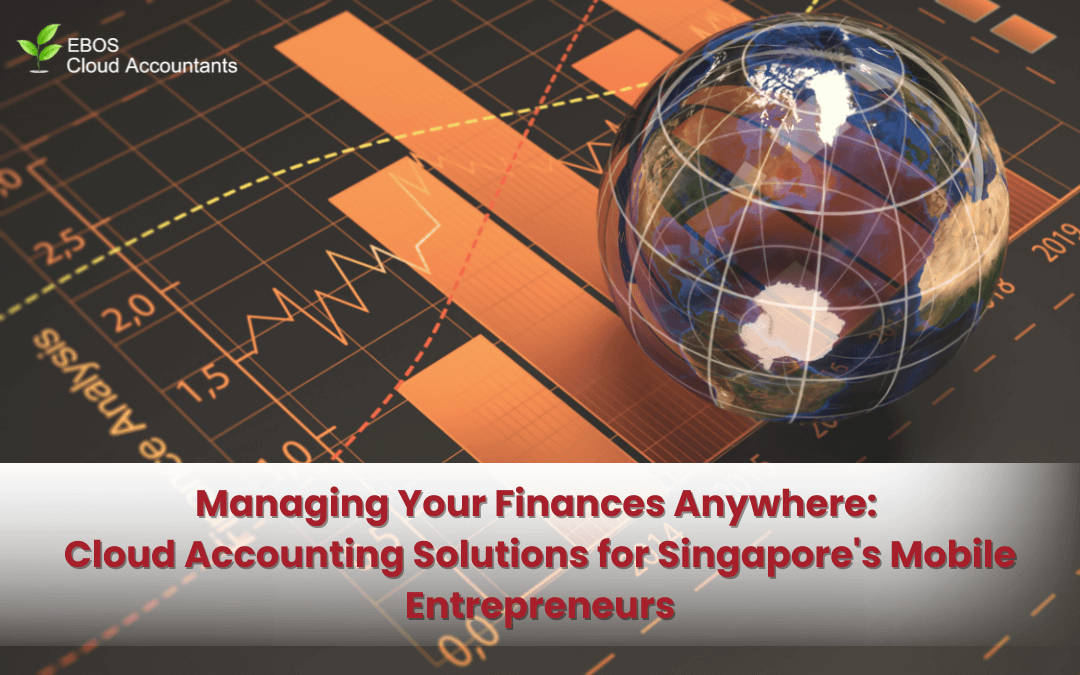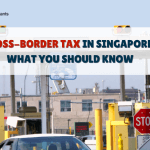Today’s entrepreneurs in Singapore are more mobile and connected than ever in this fast-paced, digital-first world. Real-time financial management has become crucial due to the trend toward flexible, remote work, whether from coffee shops, coworking spaces, or even while on the go. Cloud accounting solutions give Singaporean business owners and SMEs the freedom and information they need to make wise financial decisions at any time, from any location.
What is Cloud Accounting?
Online software is used in cloud accounting to handle, store, and process financial data. Cloud-based accounting systems function on distant servers, enabling users to access financial data online, in contrast to traditional accounting systems that need desktop installations and local storage. This configuration is perfect for today’s mobile entrepreneur because it provides substantial benefits in terms of flexibility, real-time collaboration, and cost effectiveness.
Key Benefits of Cloud Accounting for Mobile Entrepreneurs
- Real-Time Access to Financial Data
- Singapore’s mobile entrepreneurs may track their spending, examine their cash flow, and create financial reports instantly with cloud accounting. Regardless of location, this real-time access to financial data facilitates informed decision-making, enabling business managers to react swiftly to unforeseen costs or market needs.
- Automation of Routine Tasks
- Automation is a core feature of many cloud accounting solutions, streamlining repetitive tasks such as invoicing, expense categorization, and payment tracking. Automation not only saves time but also reduces the chances of errors in data entry, ensuring more accurate financial records with less manual intervention.
- Cost-Effectiveness
- Subscription-based cloud accounting solutions are typically less expensive than buying and maintaining traditional accounting software. These solutions also lower IT expenses for software upgrades, data storage, and hardware. The cost-effectiveness of cloud solutions makes them a desirable option for Singaporean startups and small enterprises.
- Collaboration and Data Sharing
- Working together with accountants, financial advisors, and business partners is made possible by cloud accounting software. Financial data may be accessed and edited by multiple individuals at once, which facilitates information sharing and keeps everyone informed. In Singapore, where a sizable portion of companies use freelance or remote teams, this is very advantageous.
- Enhanced Data Security
- Usually, cloud companies make significant investments in security features including frequent backups, multi-factor authentication, and data encryption. These features guarantee that your financial information is safe and complies with legal requirements. Businesses in Singapore, particularly those operating in industries like fintech and e-commerce, must adhere to data protection regulations, and cloud solutions frequently include security features.
Top Cloud Accounting Solutions for Singapore’s Entrepreneurs
If you’re considering a shift to cloud accounting, here are some of the most popular solutions among entrepreneurs in Singapore:
- Xero
- Small businesses frequently utilize Xero because of its comprehensive feature set and easy-to-use interface. It enables real-time bank reconciliations, facilitates automatic invoicing, and interfaces easily with a variety of business applications—all of which are essential for managing cash flow.
- QuickBooks Online
- QuickBooks Online, which is well-known for its adaptability and robust reporting features, provides a range of options designed to meet various business requirements. It is perfect for entrepreneurs who are constantly on the go because of its mobile app, which makes it simple to track invoices, costs, and receipts.
- Wave
- For cost-conscious entrepreneurs, Wave provides free accounting software that includes invoicing, receipt scanning, and financial reporting. Though it lacks some advanced features, Wave is a solid choice for small businesses looking for essential accounting tools at minimal cost.
- Zoho Books
- The Zoho package, which includes Zoho Books, offers a number of seamlessly integrated business applications. With its user-friendly dashboard, multi-currency compatibility, and strong inventory tracking, Zoho Books is a cost-effective choice for small businesses in need of a complete accounting solution.
- Sage Business Cloud Accounting
- For both small and large firms, Sage provides scalable solutions. Singaporean business owners who want features for tax compliance, payroll integration, and dependable customer service favor it. Additionally, Sage offers integrated reports that make tax preparation and compliance easier.
How to Get Started with Cloud Accounting
Transitioning to a cloud-based accounting solution might seem daunting, but here’s a quick guide to getting started:
- Identify Your Business Needs
- Determine what features are essential for your business, such as invoicing, expense tracking, payroll integration, or multi-currency support. Understanding your needs will help you choose a solution that meets your requirements.
- Test Drive Options
- The majority of cloud accounting companies provide free trials. Take advantage of this time to investigate several choices and choose the platform that best suits your interests and productivity. Think about the platform’s reporting features, customization choices, and simplicity of use during the trial.
- Integrate with Other Business Tools
- Numerous cloud accounting solutions have integrations with other well-known business tools, including project management software, payment gateways, and CRM systems. Maintaining compatibility with current tools might help you run your business more efficiently.
- Train Your Team
- Introduce your team to the new system and provide training on essential features and best practices. Most cloud accounting platforms offer tutorials and support resources that can ease the transition.
- Consult an Accountant
- You can maximize the setup by speaking with a financial counselor or accountant who has knowledge with cloud accounting. Accountants who are knowledgeable about the selected program can help with financial insights, tax preparation, and initial setup.
For Singaporean mobile businesses, cloud accounting is becoming essential since it offers the adaptability, effectiveness, and intelligence required to thrive in a cutthroat market. Using cloud accounting gives business owners more financial control, less administrative work, and the flexibility they need to succeed in the modern digital economy. Cloud accounting is a useful tool for efficiently managing your finances from any location at any time, whether you are a small business owner, freelancer, or startup founder.
Check out our website at https://ebos-sg.com/ to explore more articles and discover how our Cloud Accountant Services can support you on your business.







